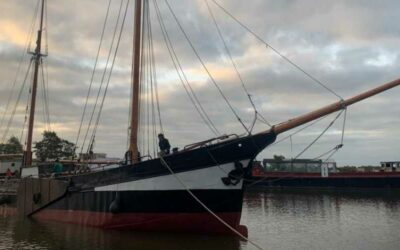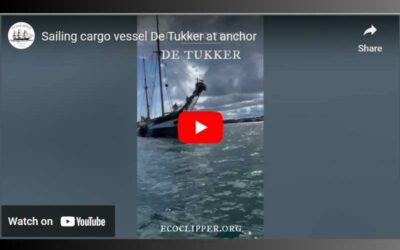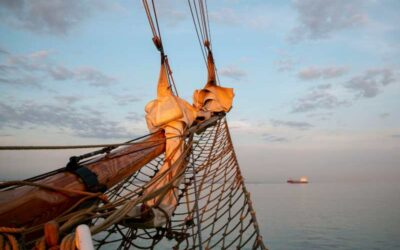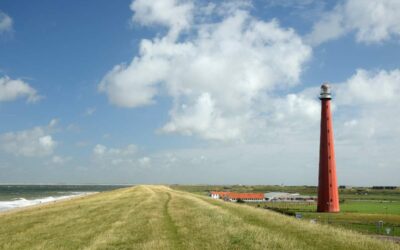Aotearoa New Zealand became an exporting nation, transporting (semi-processed) goods such as wool, whales and seals, timber and flax across the ocean mainly to England. Since 1882 there were also refrigerated cargo ships, like the Dunedin, which managed to transport frozen meat across the globe.

Even if the main fleet freight transport from Aotearoa now consists of industrial cargo ships, the traditional way of sailing and canoeing still exists, and it has been restored over the past few years. In the past, a lot of indigenous knowledge got lost through colonisers forcing Māori to stop speaking their own language and live their culture.
However, sailors such as Sir Hekenukumai Busby have dedicated their life to reclaim the art of traditional Māori voyaging and sailing the vast Pacific on traditional Māori waka. He built these together with people from different countries in the Pacific using the same material (e.g., kauri trees) and carving and rigging techniques as their ancestors used. Sir Hekenukumai’s journeys have been documented in the recently premiered movie “Whetū Mārama – Bright Star”. To make sure that the traditional knowledge wasn’t lost, the protagonists also founded a school to teach astronomical navigation and indigenous sailing. Today, a few traditional wakas sail on the shores of Aotearoa New Zealand, introducing the Māori way of sailing and teaching the trainees traditional navigation.
But the Māori art of making wakas is still expanding across the globe and has recently arrived in the Netherlands. In 2020 the waka Te Hono ki Aotearoa (The Link to New Zealand) which Sir Hekenukumai Busby built was gifted on permanent loan, to the Museum Volkenkunde, the Netherlands Ethnology Museum in Leiden. After this, several cultural exchanges between the Netherlands and Aotearoa New Zealand took place to celebrate and recognise this special relationship, as this waka is the only one in the Northern hemisphere.

Ecoclipper is also integrating indigenous perspectives into the western world of sailing and sail cargo. Ecoclipper understands a sailing ship to not only as a transport medium, but also a place of identity, influence and a feeling of belonging. Ecoclipper’s approach to sailing and sail cargo is built on the interconnectedness of everything, from the environment to the people on board and the communities on land. This interconnectedness is also essential for the protection of the environment and the climate. Indigenous people impressively show the world how to incorporate into every aspect of life. By sailing emission and pollution free, while cooperating with local communities Ecoclipper contributes to uphold the values of the ocean, the land and the local and indigenous culture.
More information can be found here:
- https://teara.govt.nz/en/freight-and-warehousing
- https://teara.govt.nz/en/canoe-navigation
- https://nzhistory.govt.nz/te-akomanga/contexts-activities/waka
- https://mch.govt.nz/crew-sail-nz-tahiti-using-celestial-navigation
- https://www.teaomaori.news/traditional-ocean-voyaging-providing-education-and-lifestyle
- https://nzhistory.govt.nz/te-akomanga/contexts-activities/waka




